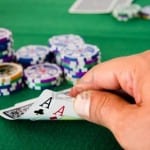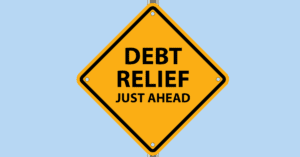

Gambling Your Way into Bankruptcy
Gambling is essentially a game of chance. It involves winning or losing money or belongings. Casino games, slot machines, betting on horse racing, lottery tickets, stock market speculation and internet gambling are some of the common arenas where gambling could occur.
The appeal of making a windfall by gambling can become an addiction for some. The Centre for Addiction and Mental Health, in its publication “Problem Gambling: A Guide for Financial Counsellors” has categorized gambling problems into causal, social, serious social gambling, harmful involvement and pathological gambling, for this purpose.
Reckless gambling can also have a severe impact on a person’s finances. Unrestrained borrowing to meet gambling debts could lead to severe financial stress, and in many cases could result in bankruptcy.
In Canada, individual bankruptcy proceedings are governed by the Bankruptcy and Insolvency Act (“BIA”), administered through the Courts, and federally Licensed Trustees. Gambling is not expressly prohibited under the BIA, the object of the Act however, is to maintain a balance between providing the person facing bankruptcy, with a fresh start, while also protecting the interest of their creditors.
The BIA therefore requires the debtor to refrain from extravagant living, and gambling activities to become properly and fully discharged from their debts under the BIA.
A Discharge Order
An order of Discharge is provided by the Courts. In Ontario, it would the Superior Court of Justice in Bankruptcy and Insolvency. A Discharge order, releases the person in bankruptcy from all claims of their creditors provable in bankruptcy. Debtors are entitled to an automatic discharge nine (9) months after the date of their initial bankruptcy, unless the same is opposed by the trustee or a creditor. In the event, the debtor has been directed to make payment of his surplus income to the estate, the debtor will be eligible for an automatic discharge twenty-one (21) months after the date of bankruptcy.
The actual purpose of the BIA within the proceedings of the nine month frame work is to provide the person in bankruptcy with an opportunity of rehabilitation and an opportunity for a fresh start, while also enquiring into the financial affairs of debtor.
In bankruptcy proceedings, the Court inquires into whether the bankruptcy has been caused by the conduct of the debtor. For instance, the Court will discharge a bankrupt who is honest and sincere and where the bankruptcy was caused by circumstances beyond his or her control.
However, if it is established by the Courts, that the bankruptcy has been caused by other the conduct of the debtor, such as, indulging in activities like reckless and harmful gambling or extravagant living, the Court may either: refuse, suspend the discharge or pass a conditional order of discharge.
Conditional Orders of Discharge
Conditional orders of discharge are granted, subject to any terms and conditions with respect to earnings or income that may become due to the bankrupt or property acquired by the bankrupt post-bankruptcy.
Conditional orders usually contain directions from the Court requiring the bankrupt to pay 10% to 50% of the debts incurred by way of gambling. These conditions are imposed irrespective of the ability of the bankrupt to repay.
The Courts usually ensure that the bankrupt person is required to make meaningful contributions to his creditors. Therefore the terms of the conditional order usually address the amounts which the creditors could have been offered, especially where the bankrupt has the means to pay these amounts.
The Courts have intended to send a strong message against credit abuse and deter bankrupts from participating in reckless gambling activities.
Further, a conditional order of discharge may contain an order banning the bankrupt from gambling for a specific time period. This order may also be ordered to be lodged with the Alcohol and Gaming Commission of Ontario and the national credit bureaus. The bankrupt may also be directed to attend and complete a course on gambling counselling to the Trustee’s satisfaction.
In addition to these orders, in certain cases the Courts have ordered the debtor not to apply for, obtain, use, posses or acquire credit cards for a specific period of time.
Courts have generally shown unwillingness to absolve debtors of credit card debts incurred at casinos. Debtors will have to display a significant effort to repay the debts in order to obtain a discharge.
IN SUMMARY, the most important objective for a person in Bankruptcy is to obtain a proper discharge. Without a proper discharge, people who declare bankruptcies may be faced with the dilemma of having undergone an entire process of bankruptcy while, their debts are still not completely absolved.
Preparation and solid advice from an experienced Trustee or Certified Credit Counsellor is the key to administer and manage the bankruptcy process in the most efficient way to obtain a complete discharge. Bankruptcy decision based on lay advice or assumptions can more likely put the person in a worse situation after bankruptcy than before.
Debtors can avoid opposition to discharge from the trustee or the Creditors by :
- Obtaining advice for gambling from a certified gambling counsellor and obtaining treatment for gambling addiction.
- Approaching credit counsellors to obtain help in preparing financial budgets, and obtain pre bankruptcy advice.
- Attending counselling sessions to learn money management skills
- Approach an experienced and knowledgeable Trustee.
- Show significant effort to repay the debts
- Disclose honestly and accurately to the Trustee
- Details of debts owed
- Details of how the debts were incurred/money spent
- Number of members in the family unit
- Income of the family unit
- Details of assets, other sources of income, savings and investments
Contact Rumanek & Company Ltd. for more information on bankruptcy and debt solutions. Or please fill out the free bankruptcy evaluation form. To learn more please visit our YouTube Channel. Rumanek & Company have been helping individuals and families overcome debt for more than 25 years.
DISCLAIMER: THIS ARTICLE IS ONLY FOR INFORMATIONAL PURPOSES ON THE GENERAL APPLICATION OF BANKRUPTCY LAW. THIS ARTICLE IS NOT MEANT TO BE LEGAL ADVICE AND SHOULD NOT BE TREATED AS SUCH. Please contact a licensed bankruptcy trustee or a licensed bankruptcy lawyer in Ontario for any advice.




